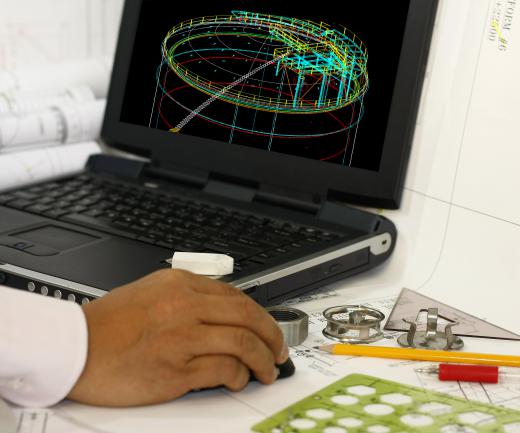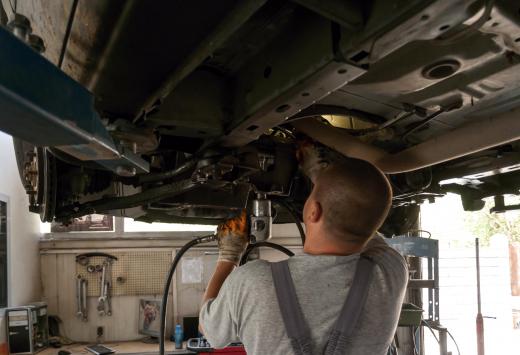What Skills are Needed for Mechanical Engineering Employment?
Finding full-time mechanical engineering employment requires a specific set of skills, education, and experience. A mechanical engineer can find employment opportunities in industrial factories or production environments, research, the automotive sector, or related industries. A mechanical engineering technologist can find work in the same range of industries, but is not qualified for professional engineering positions.
The role of a mechanical engineer is to design, analyze, and maintain complex mechanical systems. A post-secondary education in mechanical engineering is mandatory when looking for mechanical engineering employment in a professional capacity. As part of this training program, there are four primary skills taught: mechanical skills, spatial relations, computer design skills, and written communication.

Mechanical skills can be divided into two primary areas: physical mechanics and theoretical mechanics. Physical mechanics includes motion, levers, pressure, and gravity. These fundamental functions are central to all aspects of mechanical engineering. The ability to understand and absorb theoretical mechanics concepts and apply them to mechanical system designs and testing is very important in this field. Many mechanical systems are so large and complex, that they cannot be tested completely before implementation. Instead, models are created to test functionality and determine performance tolerances.

Spatial relations is a term used to describe where an object is located in relation to another object. The physical relationship of items to each other is based on their proximity and impact upon each other. The ability to reference one item in relation to another is essential in mechanical engineering, due to the size and complexity of the machinery.

Computer skills form a large part of most of the work required in mechanical engineering employment. In addition to the standard office productivity tools, there is a wide range of specialized software used in this field. Some examples include project management, computer assisted design (CAD), simulation software, and more. The ability to quickly learn how to use new software and apply these techniques to current project is an important skill.

Written communication skills are required in mechanical engineering employment for two primary reasons. The first is to properly document all the steps completed and the assumptions used when creating or modifying a design. The second reason is to explain the concept, risks, and benefits to non-engineering staff. All projects require cooperation from people in a wide range of positions to be approved and completed. The ability to clearly explain a project's scope, plan, and the expected costs and revenue is essential in any business.
AS FEATURED ON:
AS FEATURED ON:















Discussion Comments
Leadership skills are an important aspect of mechanical engineering careers, at least in my experience. I work as a Project Manager in the manufacturing industry and have found that leadership is one set of skills that wasn't valued as much at my school. I think it is important that colleges and universities provide Mechanical Engineering students with a leadership and management background to some extent, because many students will go on to use these skills in their industry of choice.
If you are still looking into colleges or universities, research their programs and find out if they place an emphasis on leadership. Talk to academic advisors to learn more about other opportunities for leadership development. If you're already in college and your school, like mine, doesn't place a strong emphasis on leadership, look for internship opportunities in which you will be given the chance to supervise others and build management skills that way.
Another important skill that is required of people looking for mechanical engineering jobs is mathematics. I am currently a student and have come to realize that one of the most important skills I will learn throughout my Mechanical Engineering degree is how to become better at math and how to use math to effectively solve problems.
I'm curious about learning which skills those who have found mechanical engineering jobs use most often in the workplace? Is the same skill set valued in the mechanical engineering workplace as is valued in college? Thanks!
Post your comments